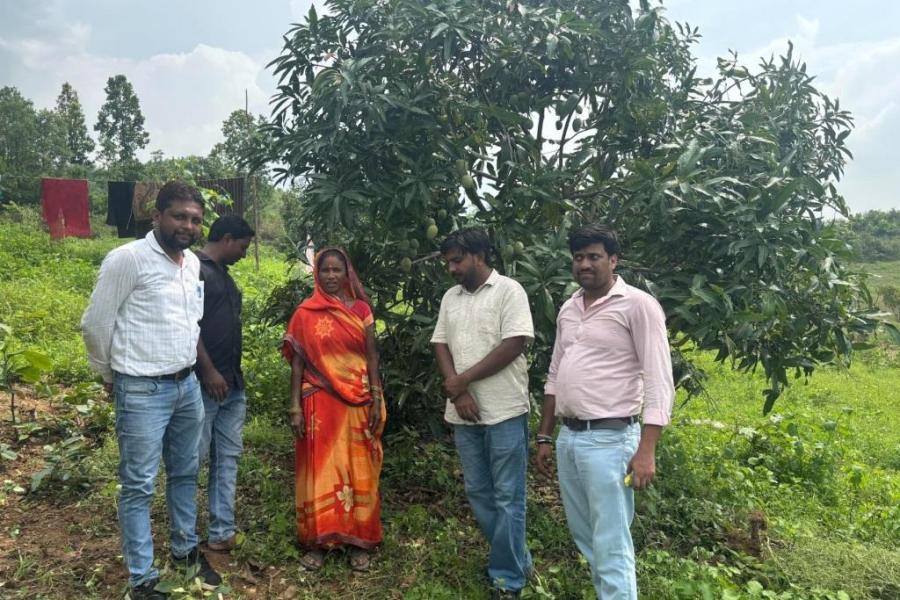In this special column, Dr. Neelam Gupta, Founder & CEO of AROH Foundation shares her insight on how ‘Convergence’ is the key to bring a paradigm shift from 'Good Governance' to 'Effective Governance' in the CSR domain to get the desired outcomes.
Column by Dr. Neelam Gupta, Founder & CEO of AROH Foundation
India was the first visionary nation to legally mandate corporate social responsibility (CSR). Fostering big chunk of corporate resources and revenues along with government’s efforts for nation’s development was indeed a quick and clever farsighted step. The rules in Section 135 of India’s Companies Act made it mandatory for companies of a certain turnover and profitability to spend 2% of their average net profit for the past three years on CSR. Since then India’s philanthropic landscape has undergone major changes over the past decade. Amendments to the Companies Act in 2019 and 2020, the Ministry of Corporate Affairs’ Companies Amendment Rules (CSR Policy) 2021, or the changing FCRA rules have made strong operating procedures for planning, implementing and gauging the province of CSR in India. And eventually with all brains and heart, this sector has created humongous ground for itself to play. At present, 18012 companies, over three million Non-Governmental Organisations (NGOs) have spent Rs 25714.65 cr through 38790 development projects benefiting 139.34 crores Indians in FY 2020-21. With such large troop of manpower, resources and endowments at disposal, it is a parallel administration we have created nationwide, which is working on the similar vision and goals, as that of a government.
So, while we agree that we have been investing tall in terms of monetary, cerebrum or resources fronts, how much have we been able to achieve in terms of impact and sustainability? The answer is shocking and calls for retrospection. In 2014, India’s standing on Human Development Index (HDI) ranking was 131 and after 8 years of ‘tough grind’ and spending heap of money, we stand at 132 in 2022. Yes 1 step lower after 8 years! So, the question is where are we lacking?
There are multiple stakeholders, working for the same cause but in disintegrated way and in silos. Various governments and agencies have found it challenging to break these silos and unlock the synergies between various development stakeholders. One of such move shall be inculcating government’s policies, welfare schemes and funds at the planning phase of our development models. The word here I want to use is ‘convergence’. That’s not a new word, rather we also cannot deny that while most of the implementing stakeholders struggle to add convergence factor in the plan, the government on the other hand struggle with lack of grassroots experts and resources. The need of the hour is that we make a collective and synchronized attempt towards development through reinforcing government’s efforts with corporate resources and vice versa.
It is recommended that a triangulated systemic reinforcement through a clearer guidance on exploring convergence at the scheme proposal stage, a dynamic institutional framework through committees and coordinating bodies, to ensure adherence to convergence in implementation and incentives and capacities for convergence together may be incorporated. This may not only emphasize the convergence of resources and stakeholders, but might also infuse convergence of program design as well as collective learning of government programs. Breaking silos will greatly contribute to the achievement of national priorities and to the well-being of all sovereign citizens of India.
While it is essential to break the deadlocks and find ways to work around these issues and challenges, one of the critical factors which can make inter-agency coordination successful is political leadership. Additionally, building trust among various players is another key factor. Forming committees at different levels (like state, district, and block) and ensuring regular meetings amongst the committee members improves coordination, optimizes resources, and reduces overlap. These committees also help in facilitating knowledge sharing, planning, training and technical support. It’s basically like putting all bricks together and facilitating the agenda of sustainable development together. And all stakeholders needs to be avante garde and in resonance to create bigger momentum.
One futuristic move by the MCA and SEBI towards integration of all services and resources of development sector has been the launch of National CSR portal and National Social Exchange Portal. It shall serve as one stop repository of reports, data, funds and manpower data bank and various welfare schemes. The social stock exchange is a novel concept in India and such a bourse is meant to serve the private and non-profit sectors by channeling greater capital to them too.
Resource Convergence to optimise financial and human resources has been well recognized in policymaking. The term Resource Convergence has now become a common parlance in the development agenda. The serious efforts to merge the Centrally Sponsored Schemes will go a long way in easing out duplication and enabling better convergence. Each of the schemes independently provides the scope for convergence. The state and district administrations have also been innovative in creating systems to facilitate convergence. Thus, the impact of convergence in policymaking, in the design of schemes and at the cutting edge is already evident. In the coming years, it will get assimilated in the drill of execution.
Thus, it is important to ensure that the convergence concept is inbuilt into CSR efforts as CSR should fill the gaps and not duplicate the efforts of the government. CSR can be used to enhance the manufacturing sectors in the states and fill in the infrastructure and management gaps. A proper utilization of CSR can contribute to the country's growth. As we all are passionately and professionally committed towards development of the nation, the quota for convergence should now be imperative in all our proposal and budget section. Convergence can help make a paradigm shift from 'Good Governance' to 'Effective Governance' to get the desired outcomes.






.jpg)











.jpg)



